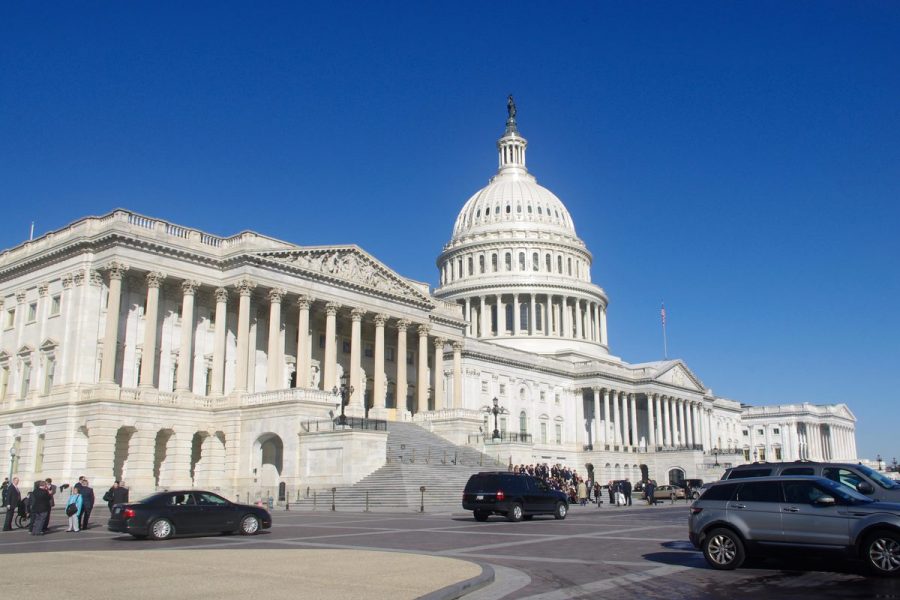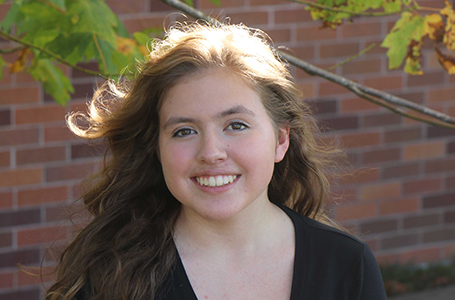With the Election Approaching, Students Share Their Reactions to Trump’s Nomination for Supreme Court Justice
After President Trump nominated Amy Coney Barrett for the open Supreme Court seat, many argue that the seat should not be filled until after the upcoming election.
October 7, 2020
On Sept. 26, President Trump announced his Supreme Court nominee as Amy Coney Barrett.
Just over a week before on Sept. 18, Justice Ruth Ginsburg passed away at the age of 87 due to complications of metastatic pancreatic cancer, leaving behind a legacy of fighting for equality, and opening up a Supreme Court justice seat.
Barrett’s nomination caused controversy with many who thought that Justice Ruth Bader Ginsburg’s seat shouldn’t be filled until after the election.
Those who support the nomination echo the words Ginsburg said back in 2016 regarding Obama’s Supreme Court nominee. “The president is elected for four years not three years, so the power he has in year three continues into year four,” Ginsburg said. “Maybe members of the Senate will wake up and appreciate that that’s how it should be.”
However, in this situation, many people, including Ginsburg herself, want the next Supreme Court justice to be picked after the election.
“My most fervent wish is that I will not be replaced until a new president is installed,” Ginsburg said in her last few days.
Many have claimed that since the majority Republican Senate refused to vote on Obama’s Supreme Court nominee in 2016 because it was an election year, the same principle should be upheld in this situation.
“I think it would be good to respect her wishes,” said sophomore Marieka Kaufman. Kaufman said that in general, she believes in the year of an election an open seat on the Supreme Court should not be filled until after the election, because with this principle, “either side still has a chance at [filling the seat],” Kaufman said.
In contrast, senior Sawyer Paugh said that President Trump has “the constitutional right to appoint someone.”
“[Although] I think that [Justice Ginsburg] was a very respectable and effective justice, I think if we follow her wish then we have to follow every other wish that [happens], and we can’t allow a wish to overturn political precedent and how appointments and appointees [are chosen],” Paugh said.
Junior Mary Hanley said that she knows who Barrett is, but “I don’t think she’s a great replacement for Ginsburg,” Hanley said. “I don’t really like her that much.”
Senior Molly Jenne, meanwhile, said that she thinks that Barrett is a “decent choice” for a Supreme Court justice.
“I know she taught many, many years at Notre Dame,” she said. “I think that she will, like any justice, carry on as the best she can.”
Some people fear that Barrett’s Catholic identity will interfere with her ability to rule as a judge because of a paper that she co-wrote in college with a professor. The paper argued that Catholic judges should be exempt from ruling with the death penalty.
However, during an interview in 2017, Barrett claimed that she no longer agrees with the idea that Catholic judges should be exempt from ruling with death penalty. “A judge must apply the law as written. Judges are not policy makers, and they must be resolute in setting aside any policy views they may hold,” Barrett said. This type of thinking makes her an originalist in terms of how she chooses to interpret the law.
“I think she takes into importance of trying to interpret the law in the way it was intended originally,” Jenne said.
Hanley said that she thinks this method of interpreting the law is “fine, but I also think there should be some context, especially now and taking into account the people that wrote the Constitution, and how things were when the Constitution was written,” she said. “It’s not just black and white.”
Barrett’s court hearings will start on Oct. 12, and the vote to determine her seat will likely be taking place Oct. 22.





